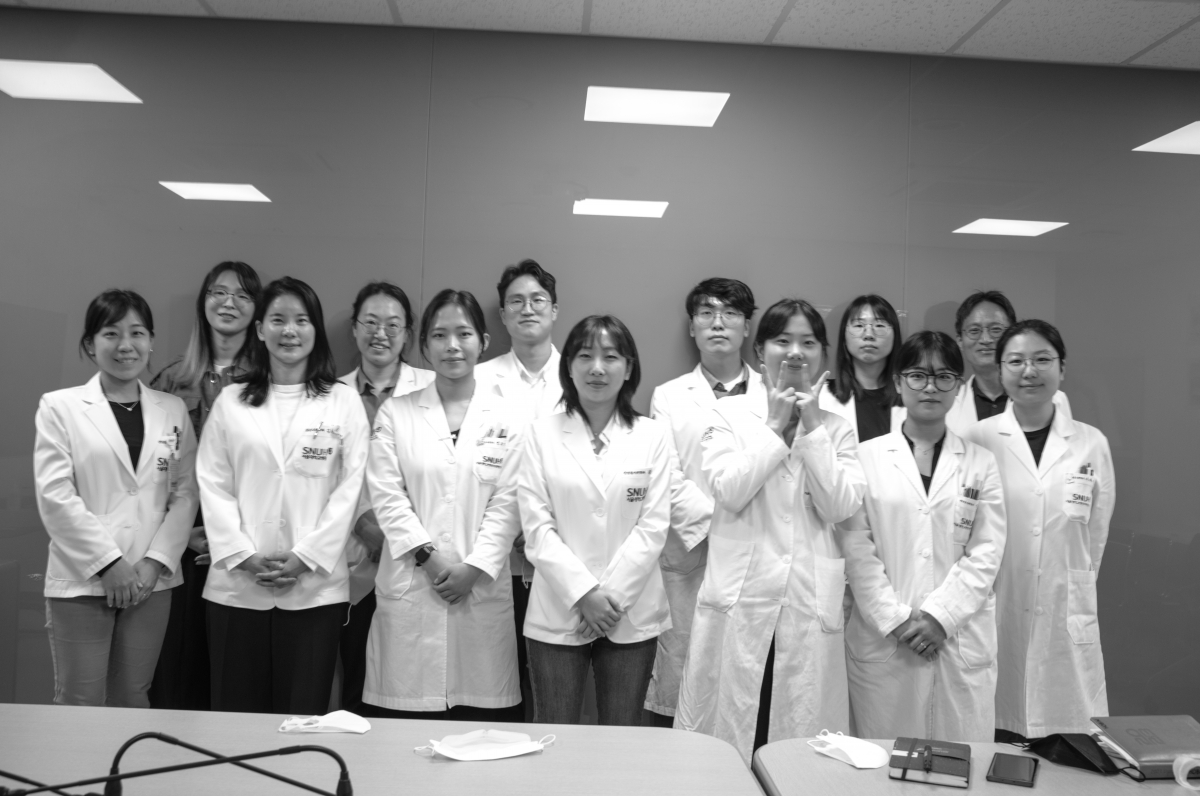
Overview
Laboratory Introduction
Molecular Diagnostics Laboratory
Molecular Diagnostics Laboratory
In close cooperation with the molecular diagnostic laboratory of the hospital, our research team is conducting various studies for developing and applying a test method using molecular genetics, a new understanding of disease mechanism through genome analysis, and establishing precision medicine. Molecular techniques are advancing very rapidly. We are striving to develop test methods that can be applied to patient care for diagnosis, prognosis, treatment selection, and treatment monitoring in oncology and other diseases, using new molecular techniques such as digital PCR, next-generation sequencing, and long-read sequencing as well as the traditional molecular techniques of PCR, Southern blot, real-time PCR, and multiple ligation-dependent probe amplification to treat genetic diseases, infectious diseases, In addition, facilitating the rapid introduction of test methods that are helpful in patient care through clinical evaluation and validation of the already developed test methods and in vitro diagnostic medical devices is also a research area of our interest.
Related Researcher

Moon-Woo Seong Professor
- Email : mwseong@snu.ac.kr
Research topics
Our research team had already established a testing system for Middle East Respiratory Syndrome Coronavirus before the beginning of 2015 MERS epidemic in Korea. Meanwhile, we conducted whole genome study with Professor Drosten's team in Germany to identify the relationship between genomic-level mutations and epidemics. Recently, the first case of reinfection was identified in Korea through whole genome analysis at the beginning of the SARS-CoV-2 pandemic in 2020. In addition, our research team has been involved in the rare disease gene diagnosis support project supported by the Korea Centers for Disease Control and Prevention since 2013. Selected as a responsible institution, it is playing a role as a key genetic diagnosis institution for extremely rare or unspecified diseases that are difficult or impossible to diagnose through regular diagnostic tests. Due to recent advances in genomic analysis, the understanding of the causes and mechanisms of unexplained genetic diseases is expanding.Our research team works closely with many rare disease teams in the hospital, including pediatrics, neurology, cardiovascular medicine, endocrinology, ophthalmology, and otolaryngology. Also, our team conducts joint research with hemato-oncology team for diagnosis or classification of hemato-oncologic diseases, selection of therapeutic options and drugs using individual genome information, development of novel genomic biomarkers. It is the goal of our molecular diagnostic laboratory to provide a basis for treatment that is optimized for each patient rather than an average treatmentBased on genomic analysis technology, through analyzing a patient's disease at the genomic level.

